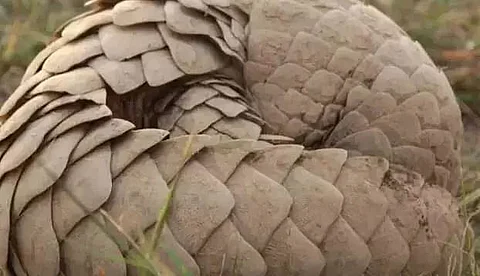
- Home
- Live Blog
- Breaking News
- Top Headlines
- Cities
- NE News
- Sentinel Media
- Sports
- Education
- Jobs

STAFF REPORTER
GUWAHATI: The State Government's success in curbing poaching of the one-horned rhinoceros seems to have turned the attention of poachers to another unique animal species of the North-East, the pangolin.
This turn of events was proved by the recent seizure of 4.1 kg of pangolin scales from the possession of some persons at Sonapur.
According to a Wildlife Crime Control Bureau (WCCB) source, the market for pangolin scales is increasing steadily in China and certain Southeast Asian countries. He mentioned out that WCCB was involved in the seizure of 48 kg of pangolin scales along with four live pangolins in Shillong in April last year and the recent seizure at Sonapur was linked to that incident.
Eight persons had been arrested in connection with the seizure at Shillong, including an Assam Rifles jawan.
The poachers not only kill pangolins themselves, but also collect the scales from rural folk who kill pangolins for their meat. The source said that some people believe that as in the case of rhino horn, the keratin contained in pangolin scales possess aphrodisiacal properties. As a result, pangolin scales are emerging as the substitute for scarce rhino horns According to the source, most of the pangolins are collected from Meghalaya. Assam is mainly used as a transit route to carry the pangolin scales to the international border at Moreh in Manipur. In Assam, pangolins are mainly found in Karbi Anglong, Goalpara and Kokrajhar. According to the source, an average-sized pangolin yields only 400-500 gm of scales.
It may be mentioned that after the big haul at Shillong, 5 kg of pangolin scales was seized at Khanapara in May last year and one person was arrested, followed by seizure of 12 kg of scales at Bokajan in November last year when two persons, including an Indian Reserve Battalion jawan, were arrested. Another seizure made in November last year at Lumding yielded 5 kg of scales, with one person being arrested.
Also read: 7 held with pangolin scales in Sonapur
Also watch: